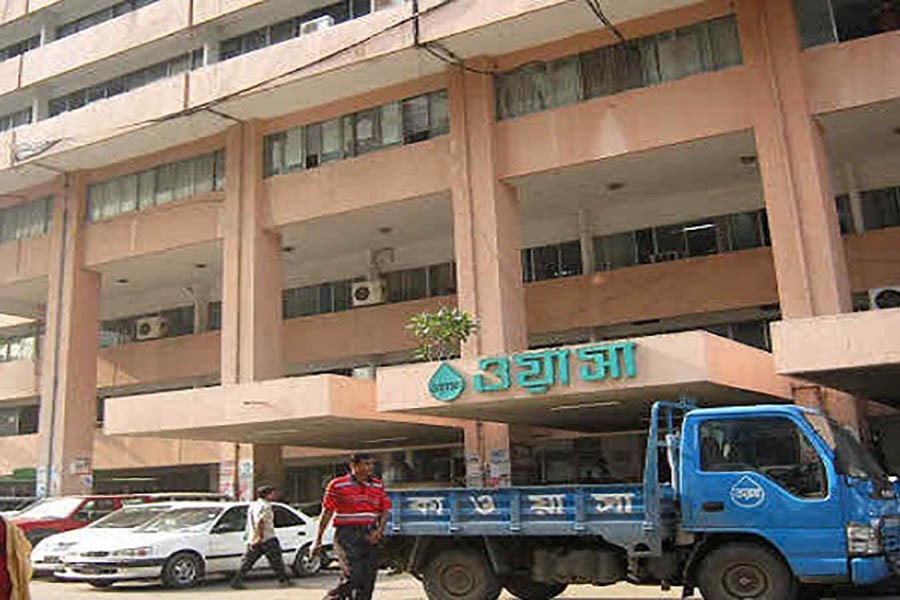
Published :
Updated :

At the time of approval of 10 projects worth Tk 119,01 billion at a virtual meeting of the executive committee of the national economic council (ECNEC), Prime Minister Sheikh Hasina raised a pertinent question about the capability of financing their projects by the state-owned companies. These companies, she stressed, were established to do business, not to receive government grants. At the meeting a project of the post and telecommunication division named Setting up Telecommunication Network at Economic Zones (phase-1) at the cost of Tk 951.2 million was approved. Clearly the prime minister's oblique reference was to the financial capability of the Bangladesh Telecommunication Company Limited (BTCL).
Instead of making profit, such state-owned companies and enterprises have been incurring losses year after year, draining out the treasury. Thus most such entities have become habituated to relying on funds from government coffer not only for undertaking new projects and expansion of the existing ones but also for their survival. This has been the case with the Bangladesh Road Transport Corporation (BRTC), BTCL, Bangladesh Biman, Bangladesh Parjatan Corporation (BPC), Banglades Sugar and Food Industries Corporation (BSFIC) and many more.
The classic case was, of course, the Bangladesh Jute Mills Corporation (BJMC). At some point autocracy of the trade unions ran its roots so deep that the once profitable enterprise started crumbling down and all subsequent attempts to revive the jute mills under it proved futile. There began an episode of looting resources in the name of privatisation of the mills. Even the state-owned banks falter or wobble when private banks are making big strides.
There is no reason to think that private enterprises are managed by extraordinarily talented people while the state-owned companies or corporations are supervised by their inferior counterparts. In fact, it is the other way round. The differences lie in the attitude towards the organisation or entity the managers, officers and employees across the aisle serve. For corporations and government limited companies, the malaise runs deep in their passivity and at times negative outlook. They are not inspired enough to give their best in order to make their organisations profitable. Whenever it is a government-owned entity, the management is reluctant to take challenges and the officers and workers down the rank take things casually --- assured, as they are, of their monthly pay packages. Since it is under the government, it will take care of things if gone haywire.
If developments such as these were the only stumbling-block on way to such entities' take-off to the next level or transformation to another generation in terms of technology, innovation or entrepreneurship, the problems could perhaps be overcome. But it is an in-built endemic corrupt regime that has been corroding the journey ahead. Accountability is missing so opulently that hardly the culprits at the top are punished for their irregularities and embezzlement.
Why should the BRTC incur losses when non-descript private bus companies expand their fleets within a few years by the profit they earn? It has been procuring a large number of nice buses from some of the famed bus companies in the world of late. But still, it sustains losses and begs money from the government for procuring more vehicles. The latest news is that it has appealed for monetary support in order to pay for arrear salaries and wages of its employees.
In the same way the BTCL earned in the fiscal year 2019-20 the lowest ever revenue in five years. When it was made a company from a state organisation in 2008-9, it made a hefty net profit of Tk 1.062 billion on its revenue income of Tk16.984 billion. Eleven years later it has incurred a loss of Tk 3.247 billion, according to its audited financial report for the fiscal 2019-20. Yet it has taken as many as 24 ambitious projects worth Tk161.738 billion. The telecommunication network at EPZ is just one of those.
If the BRTC has an excuse for non-operation of its buses and trucks for two months during the general holidays last year and the latest suspension of services, the BTCL has none. Instead, it should have earned higher revenue taking advantage of its digital connectivity. In fact, it could even help in online teaching by connecting educational institutions in a big way. When all the cell phone companies are enjoying business bonanza, taking licences and purchasing bandwidths from it, its Teletalk seems to be snug in a deep slumber. Again, entrepreneurial zeal is missing from the state-owned companies.
Had such entities been enterprising enough and corruption from them eliminated altogether, they would as well be able to compete with the private companies on an even keel or even put up a better show because of their advantageous position.
By making losses these entities compel the nation to lose. They should have earned profits and contributed handsomely to the state coffer. Instead, they are bleeding the economy on a sustained basis. The loss-making enterprises pull the country from behind but some corrupt elements not only enjoy positions and perks but also build up illegal fortunes at the cost of the nation. It is time such elements were identified and brought to justice.


 For all latest news, follow The Financial Express Google News channel.
For all latest news, follow The Financial Express Google News channel.